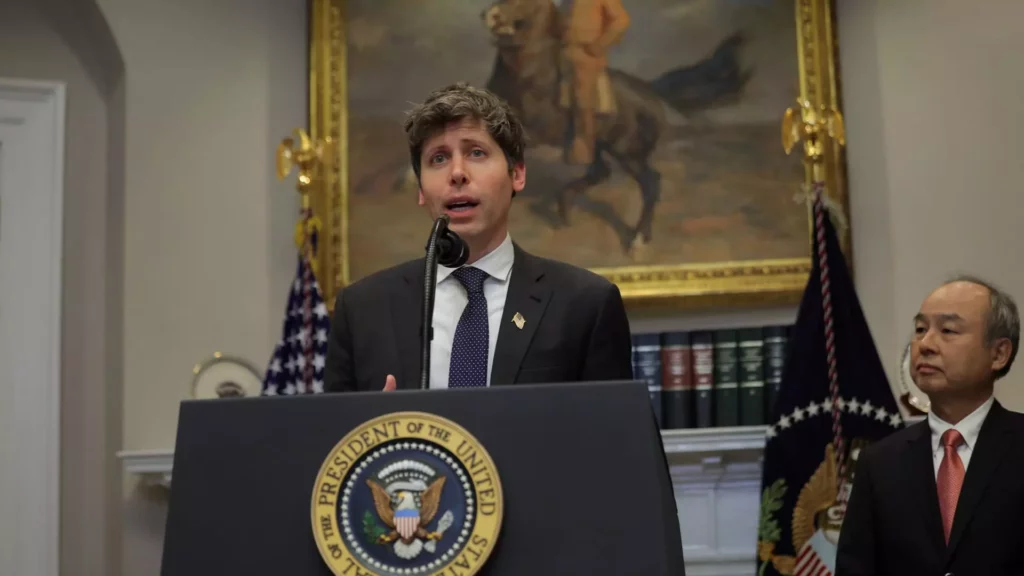OpenAI is on the brink of monumental growth, reportedly negotiating a funding round that could swell its valuation up to a staggering $340 billion. This move would mark a seismic shift in the artificial intelligence landscape, positioning OpenAI as a titan that even outstrips tech behemoth Microsoft in backing. What’s striking here is not simply the capital influx—ranging between $15 billion to $25 billion from SoftBank—but the implications this capital will hold for innovation, competition, and ethical responsibilities in AI development.
The rush of investment, spearheaded by SoftBank’s Masayoshi Son, emphasizes a critical pivot towards a high-stakes race in the AI sector. Historically, technological advancements have often led to a centralization of power in a few key players, and OpenAI appears keen to embrace this model. This reliance on a single financier, especially one as powerful as SoftBank, raises concerns about who gets to dictate the terms of AI evolution. Are we witnessing the dawn of a monopolistic regime in AI, or is this merely an expedient step towards fostering a robust ecosystem?
Part of the funding might go toward “Stargate,” a collaborative venture involving SoftBank, OpenAI, and Oracle, which has emerged from the White House as a bold initiative for U.S. AI infrastructure investment. While it is commendable to push towards strengthening domestic AI capabilities, the involvement of political figures and corporations raises alarm bells. Will this initiative genuinely prioritize ethical AI and broader societal benefit, or is it bound to become another arena for financial gain masked as innovation?
The stark reality is that such developments can either democratize access to advanced technology or entrench existing inequities. A successful funding round foreshadows a future dominated by deep pockets—essentially elevating those already in power while leaving innovators with fewer resources out of the loop. In a field where the promise of democratizing technology is critical, the seeds of inequality are perilously within reach.
Nevertheless, competition in the AI domain is intensifying, exemplified by the rapid rise of DeepSeek, a Chinese competitor that recently gained traction in the U.S. Its recent success, soaring to the top of Apple’s App Store, underscores the volatility and fierce competition defining this field. DeepSeek’s advantage in training its models at significantly lower costs raises questions about the sustainability of OpenAI’s business model and its financial backing.
CEO Sam Altman’s acknowledgment of DeepSeek as a ‘great model’ during a Washington event reflects not only a recognition of formidable competition but also reveals an essential truth: complacency spells disaster. The rise of this new player is a clarion call for OpenAI and its partners to focus on innovation, ethical practices, and, most importantly, user trust. As AI permeates every aspect of life, stakeholders must prioritize creating technologies that are responsible, transparent, and above all, in the interest of the public good.
In closing, the current trajectory of OpenAI and its astounding valuation should evoke a sense of cautious optimism. As the world stands on the threshold of an AI-driven future, the stakes are high. This moment serves as an opportunity to challenge the narrative that technology development must be mercenary. Instead, we should advocate for a future where innovation is harmonized with ethical practices, ensuring that technological power serves the many rather than the few. The dialogue surrounding AI’s future must remain vibrant and inclusive, especially as it faces unprecedented competition and scrutiny on the world stage.

